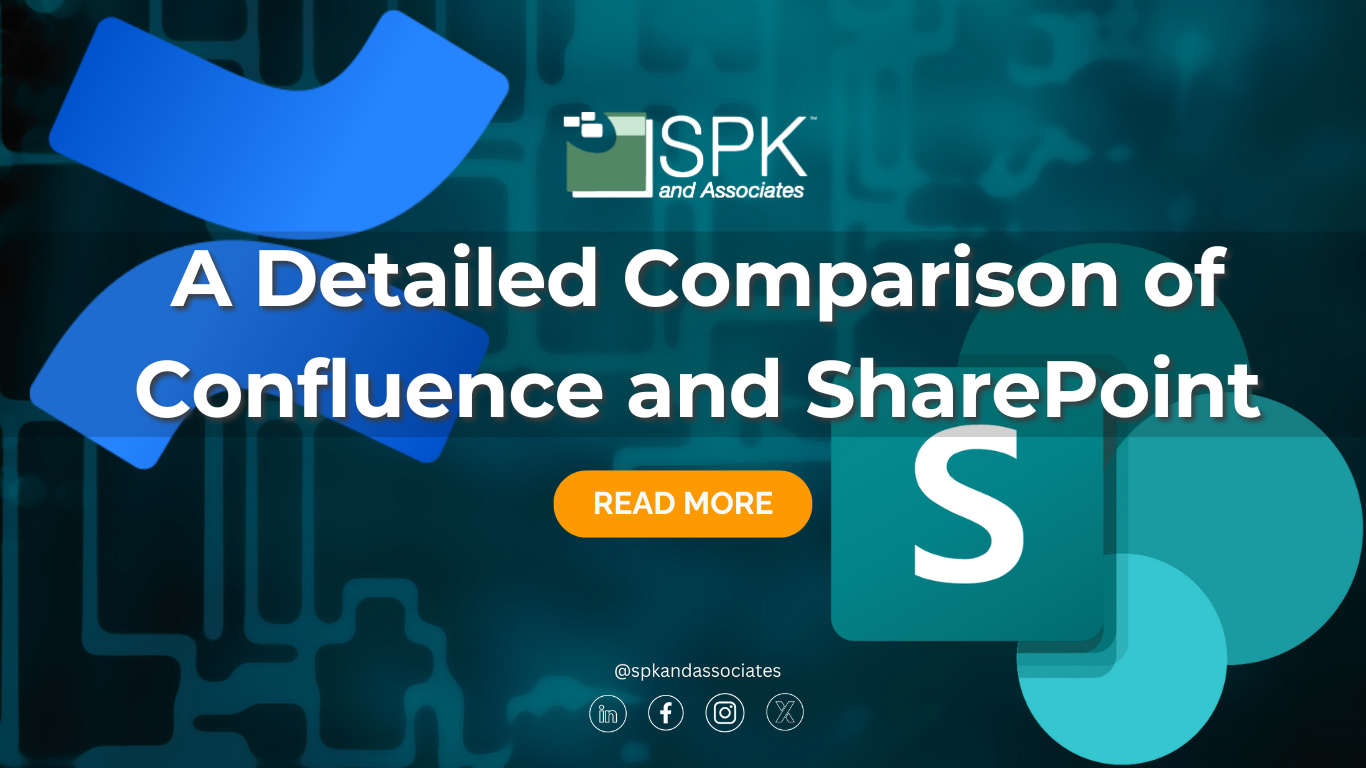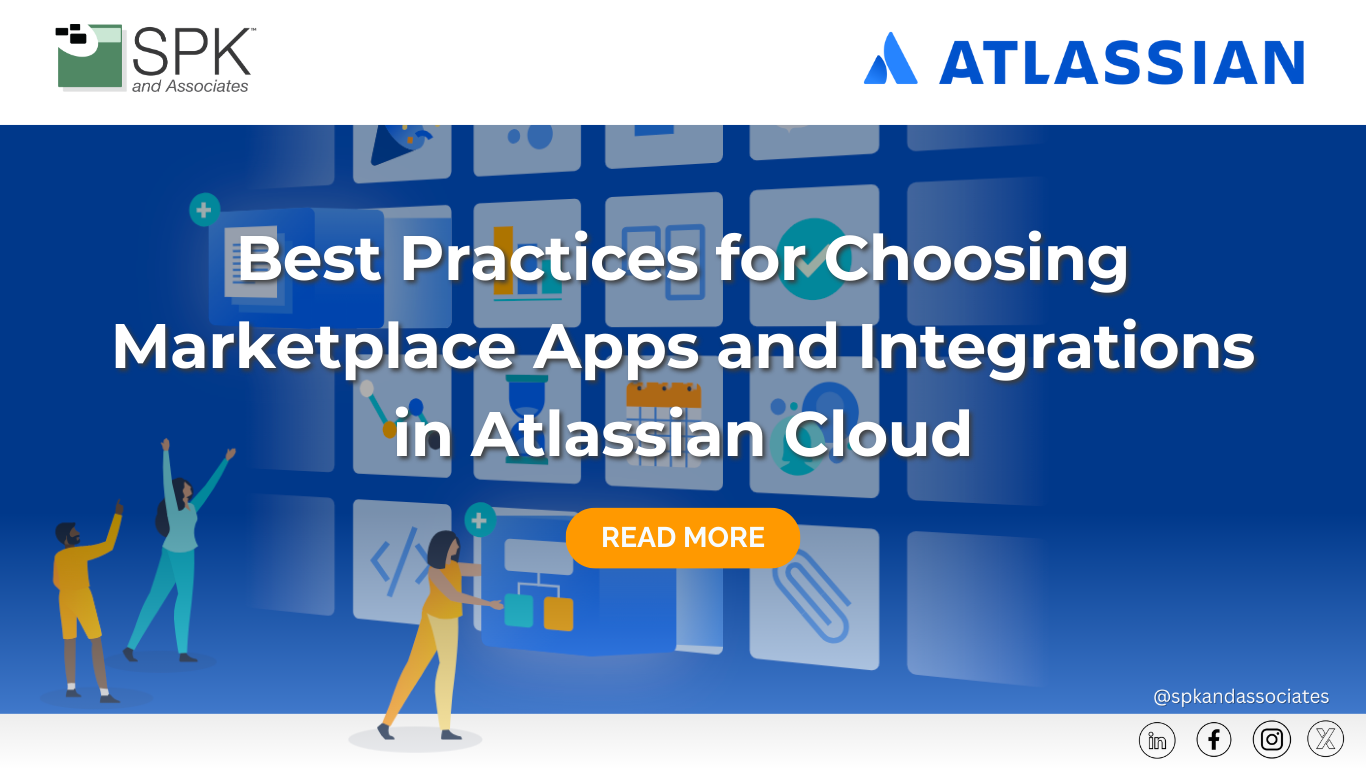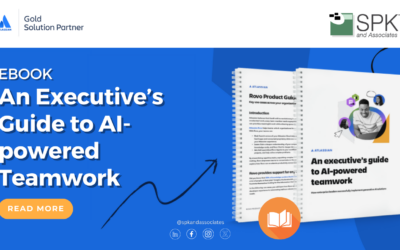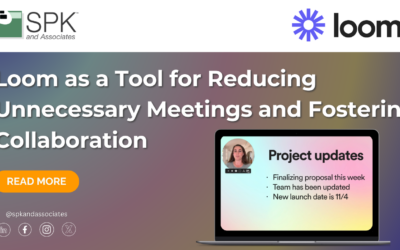Deciding when to use Confluence and when to use SharePoint can be challenging. Both tools offer a wide range of similar features that help organizations store information. Whether your team uses Atlassian products, Microsoft products, or both can play a large deciding factor in your choice. Let’s dive into the similarities and differences between Confluence and SharePoint.

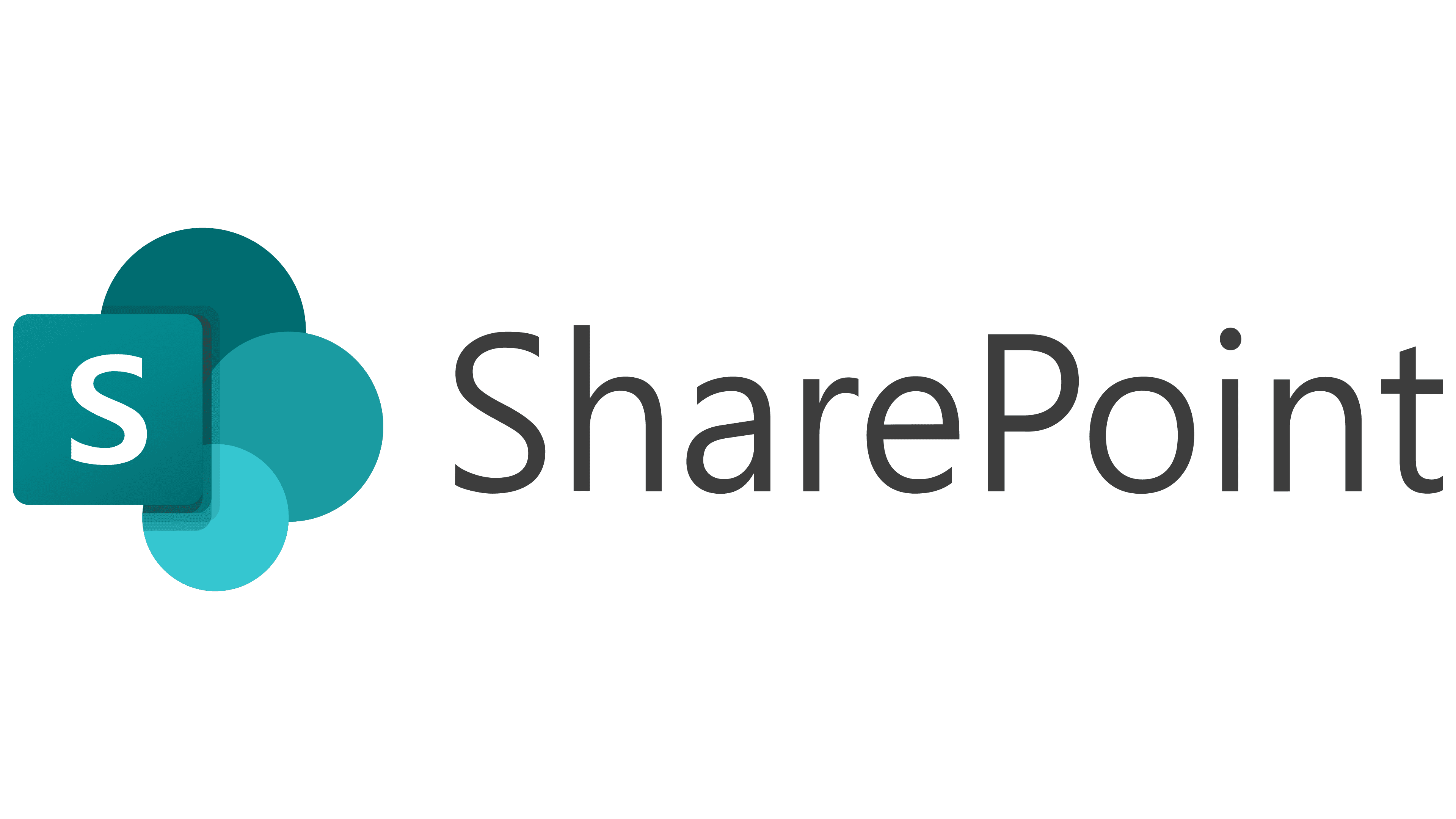
Basics of Confluence and SharePoint
Atlassian’s Confluence is a workspace designed for teams to centralize and manage company-wide information. It serves as a hub for teams to organize information, manage work, and collaborate. All content is visible unless users choose to alter the access permissions. This content is easily accessible, but also secure within the workspace. Some of its main features include page trees for organizing content, an AI-powered search tool, and real-time editing capabilities. It integrates well with other Atlassian products, specifically Atlassian’s project management solution, Jira.

Microsoft’s SharePoint is a collaboration and document management platform that allows organizations to create secure team websites. While this may seem like it is a completely different tool than Confluence, businesses often use it as a file repository. In addition to this, SharePoint offers document libraries, intranet building, and social networking tools. It seamlessly integrates with Microsoft 365 and supports synchronous collaboration for users.
Key Features of Confluence vs SharePoint
Confluence
Both Confluence and SharePoint offer a range of features that enhance collaboration. Confluence’s main features are Pages, Whiteboards, and Spaces. Pages offer a place where teams can write, edit, and discuss their work. They support real-time editing and include a place to add comments. Confluence tracks the version history of each Page and uses notifications to ensure everyone is aware of updates. A cool feature within pages is Smart Links. Smart Links enable quick previews of content from other tools just by pasting a URL. This makes it easier to integrate various resources into the workflow.
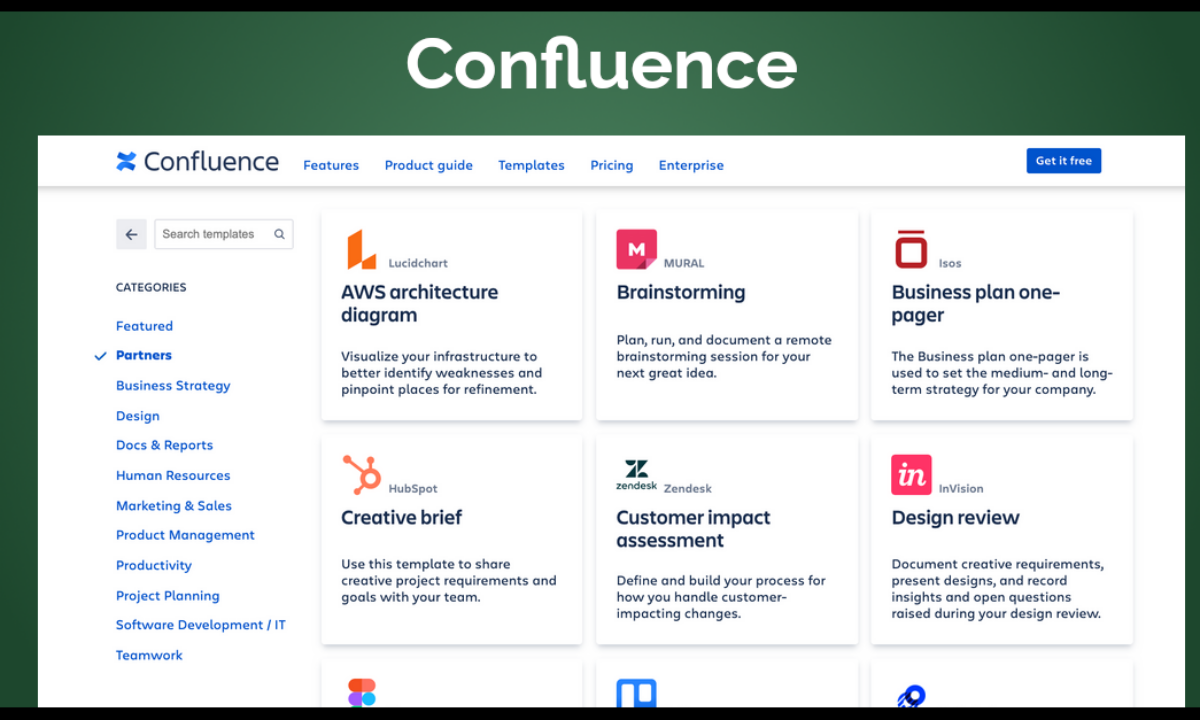
Another main feature within Confluence is Whiteboards. Whiteboards, similar to a whiteboard in real life, allow teams to brainstorm and visualize tasks. Additionally, ideas can be made into tasks such as sticky notes being converted into Jira tickets. Whiteboards also support integrating content from popular apps like Google Drive. The flexible interface makes it easy to visualize and manage processes from design sketches to project planning.
Spaces in Confluence allow users to organize their content into meaningful categories. Users can create spaces for specific departments, projects, or personal spaces for individual work. This structure allows information to be organized and accessible and allows users to collaborate. When combined with pages and whiteboards, spaces provide a comprehensive platform for project management and visualization within Confluence.
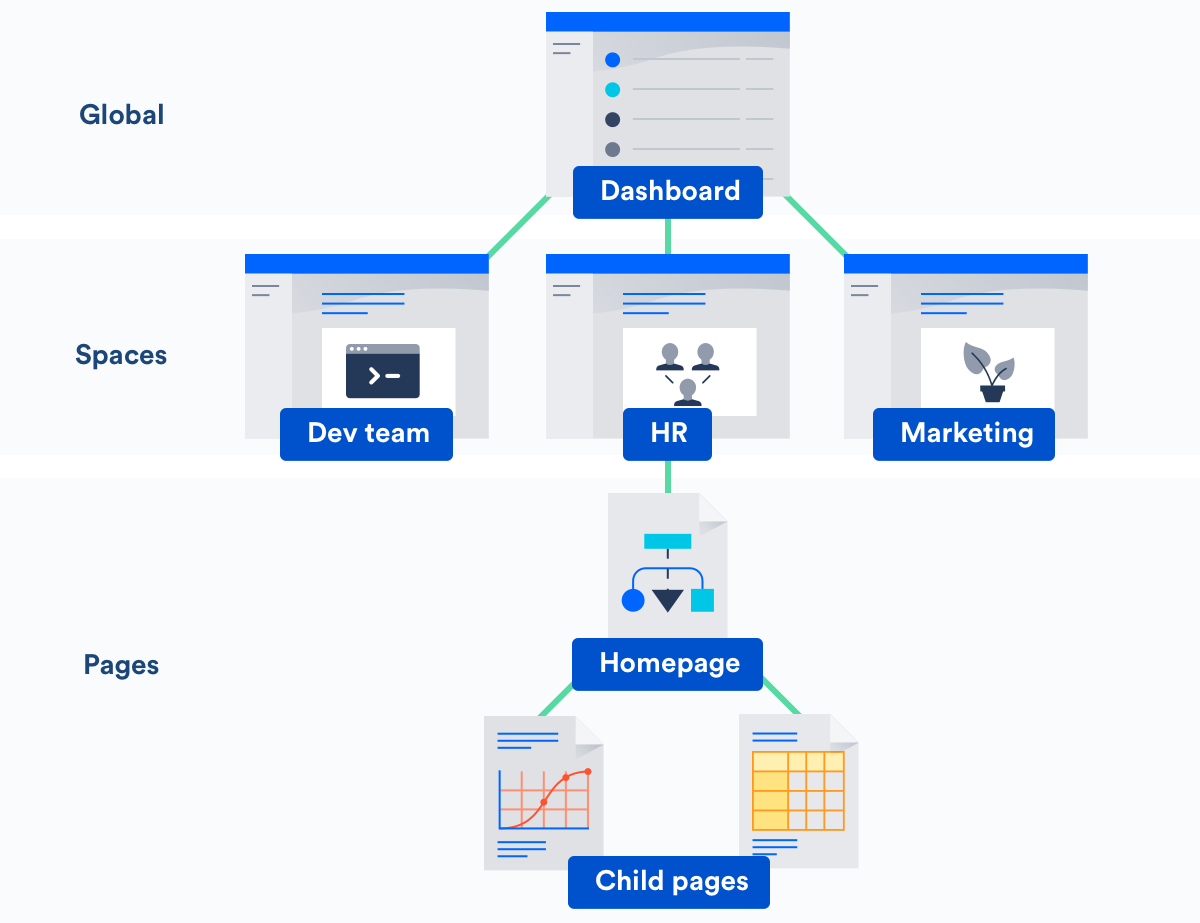
SharePoint
As mentioned previously, SharePoint offers many features that enable collaboration. One of these key features is Intranet Pages. This capability allows users to create customizable pages. Users may add content such as images and Microsoft files. These pages enable users to work synchronously or asynchronously due to Outlook and Teams integrations.
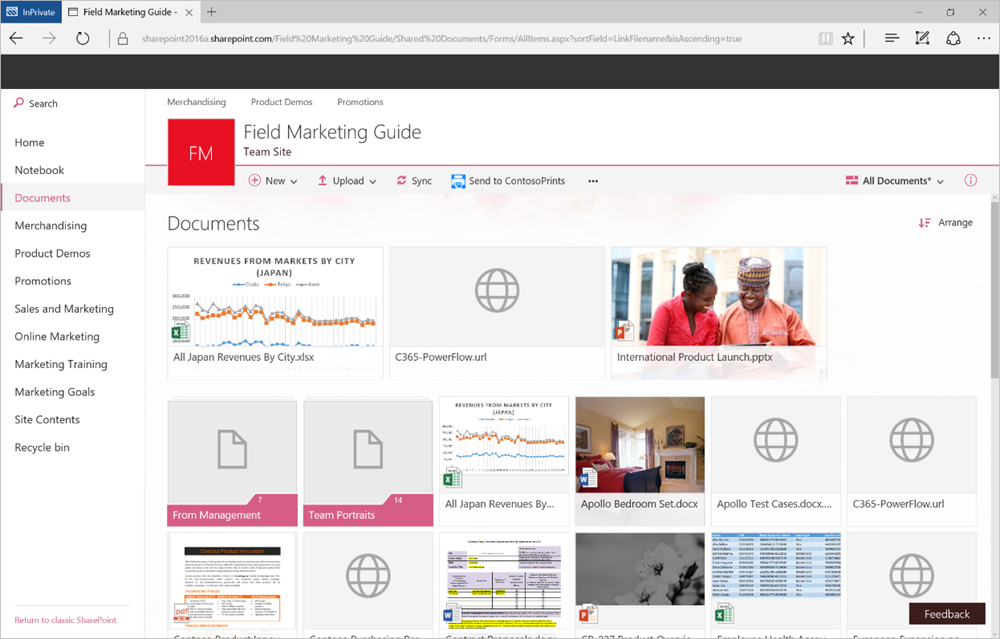
Another core feature of SharePoint is its document libraries. These libraries permit users to securely store, organize, and share files. Similarly to the Intranet Pages, multiple users may collaborate on the same document due to the version control and permission settings. SharePoint keeps track of changes and only allows certain individuals to edit the libraries based on access settings.
SharePoint also offers communication sites and team sites which are dedicated spaces for communication and project collaboration. Communication sites are designed to broadcast information to large audiences. Team sites on the other hand are made for team members to collaborate directly with each other. Additionally, SharePoint includes built-in approval workflows that streamline the approval process by routing documents to the necessary stakeholders for sign-off.
Integration Capabilities, Apps, and Add-Ons
When it comes to integrations and add-ons, Atlassian Marketplace offers a wide range for Confluence. Confluence can integrate with other Atlassian products such as Jira, Trello, and Bitbucket. Additionally, it can integrate with document management applications such as Google Drive, Microsoft Team Files, and Dropbox. Furthermore, Confluence can integrate with communication and planning apps such as Slack, Google Meet, Google Calendar, and Outlook Calendar.
SharePoint offers native integration with Office 365 tools such as Microsoft Excel, Teams, OneDrive, and Outlook. Additionally, Microsoft Copilot is available as an add-on. Copilot is an AI-powered tool designed to boost efficiency within the Microsoft 365 ecosystem. Moreover, SharePoint has a mobile app that allows users to access and edit files from anywhere. Confluence also offers a similar mobile app.
Pricing
Cost is often a deciding factor in choosing the best system for your business needs. Let’s compare costs. Using Atlassian’s Cloud Calculator, you can see Confluence’s standard service costs $4.89/user per month for under 100 users. The premium tier costs $8.97/user per month for under 100 users. Finally, they offer an enterprise tier for larger companies operating at the largest scale and since SPK and Associates is a Gold Solution Partner, you can contact our team for quotes of their Enterprise plan. SharePoint has two tiers, plan one for $5.00/user per month which includes SharePoint, OneDrive, and Microsoft Lists for small to midsize businesses. Its Microsoft 365 Business Standard tier includes all 365 applications and is $12.50/user per month. Since SPK is also a Microsoft partner, our team can provide quotes as needed.
When to Use Confluence and SharePoint
As these tools have some differing capabilities, there are different instances in which one may be more appropriate to use. SharePoint is a file repository designed to help store, organize, and manage company-wide files while Confluence is a connected workspace for collaborating on work across your organization. Both tools are great for sharing knowledge, creating content, and collaborating. Additionally, both tools are great for visualizing data and storing files. There are some differences between the two. For example, Confluence’s integration with Jira allows it to help with software development workflows, something that is not offered by SharePoint. However, SharePoint’s visual customization options and advanced version management, are not offered by Confluence.

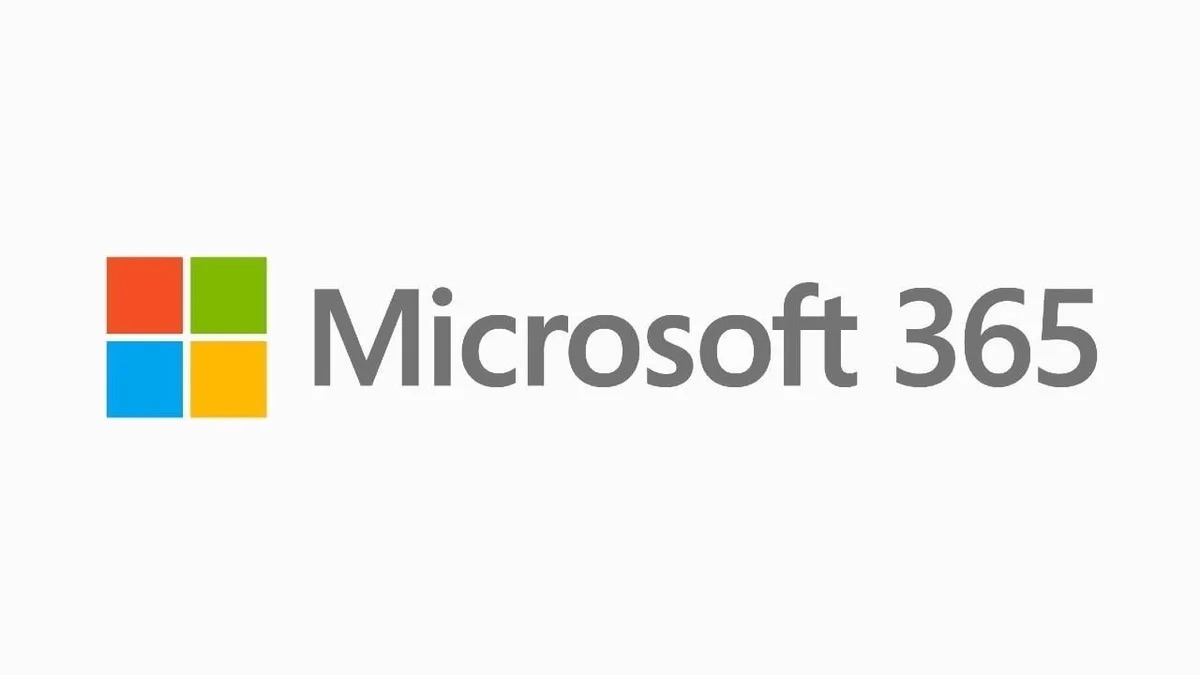
System Differences
Another deciding factor can be what system your business already uses. If you’re a Microsoft 365 subscriber, you already have SharePoint. Atlassian users do not already have Confluence, but they may want it due to its easy integration with other Atlassian tools. There are also benefits to using both, utilizing Confluence’s integration capabilities with Microsoft 365. Also, SharePoint can be a bit more difficult to manage in comparison with managing Confluence Cloud, which is a SaaS tool.
User Reviews
Some users have described Confluence as more user-friendly while SharePoint has a steeper learning curve. This is because SharePoint offers some additional features that can be more difficult to utilize. Other users have claimed they don’t see a huge difference between the two. They suggest if you want a Jira integration, choose Confluence, and if you plan to utilize a lot of Microsoft Office documents, use SharePoint. Fortunately, Confluence works well with Microsoft tools so if users want to use both 365 and Confluence, they can. Users can create, edit, and share Confluence pages without leaving Microsoft Teams. If you need to use both tools, you can use this Confluence marketplace app to connect the two systems.

Utilizing Confluence and SharePoint
Depending on factors such as company size, needs, and current tools, businesses can determine which tool works best for them. Whether they desire visualization, integration, or collaboration, one of these tools will suit their needs. If you still have questions about Confluence and SharePoint or want to get started with one, contact our experts today.


